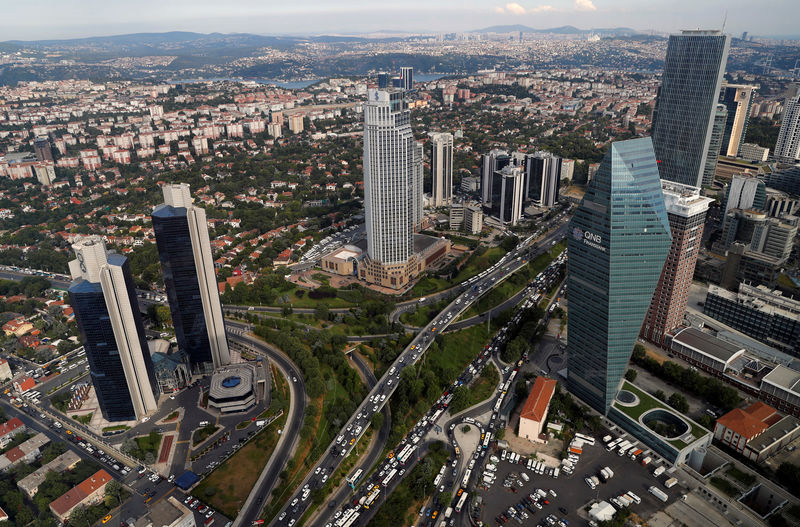By Behiye Selin Taner
ISTANBUL (Reuters) - Turkey's economy grew 0.9% year-on-year https://tmsnrt.rs/2P6vV18 in the third quarter, in line with expectations, breaking three consecutive quarters of contraction as it shook off the effects of recession following last year's currency crisis.
Compared to the second quarter, gross domestic product (GDP) expanded by a seasonally and calendar-adjusted 0.4%, its third positive quarter-on-quarter reading in a row, the Turkish Statistical Institute data showed.
A Reuters poll forecast the economy would expand 1% year-on-year in the third quarter. It also predicted that the economy will grow 0.5% in 2019 as a whole.
The major emerging market economy has a track record of 5% growth, but a near 30% slide in the lira's value last year pushed up inflation and interest rates, while domestic demand tumbled.
Graphic: Turkey gets back on growth track (https://fingfx.thomsonreuters.com/gfx/editorcharts/TURKEY-ECONOMY-GDP/0H001QXMZ9QX/eikon.png)
The third quarter growth was driven by the agricultural sector which expanded 3.8%, while industry grew 1.6% and services grew 0.6%. The construction sector shrank 7.8%.
The lira
As the economy has recovered, inflation tumbled to single digits in October due to base effects, and loan growth picked up thanks to central bank rate cuts. In the second quarter, the economy shrank a revised 1.6% year-on-year.
In late October, the central bank slashed its policy rate more than expected to 14%, continuing an aggressive bout of cuts from 24% since July to help revive the recession-hit economy.
The central bank governor subsequently said the bank had used a significant part of its leeway for loosening monetary policy. Last week, he said the bank will use required reserves to support real sector access to loans and loan growth.
Industrial production, a key signal of economic activity and widely regarded as an indication of growth, expanded 3.4% year-on-year in September.

The government's own sharply lowered forecast for the year envisages growth at 0.5% in 2019, and 5% in 2020.